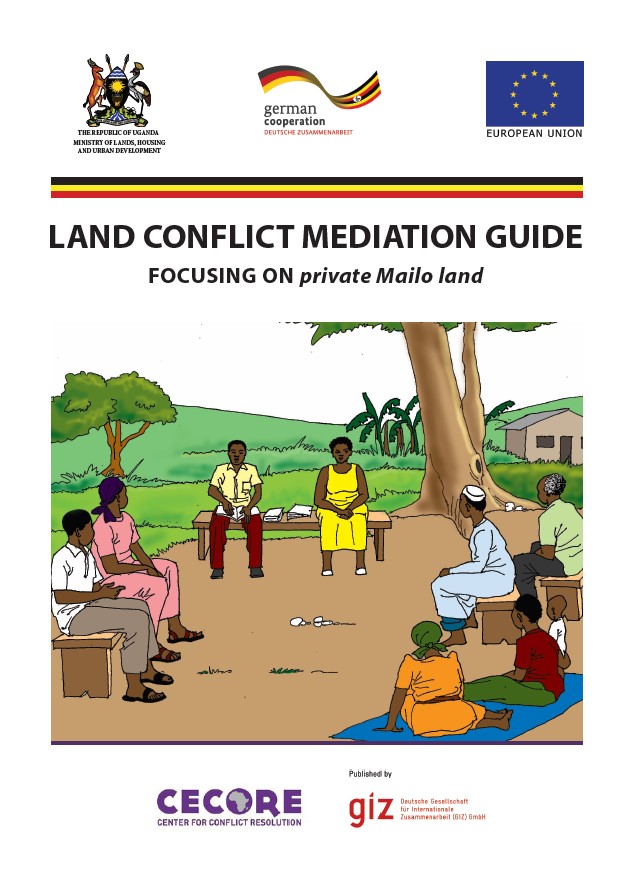Location
As a service provider in the field of international cooperation for sustainable development and international education work, we are dedicated to shaping a future worth living around the world. We have over 50 years of experience in a wide variety of areas, including economic development and employment promotion, energy and the environment, and peace and security. The diverse expertise of our federal enterprise is in demand around the globe – from the German Government, European Union institutions, the United Nations, the private sector, and governments of other countries. We work with businesses, civil society actors and research institutions, fostering successful interaction between development policy and other policy fields and areas of activity. Our main commissioning party is the German Federal Ministry for Economic Cooperation and Development (BMZ). The commissioning parties and cooperation partners all place their trust in GIZ, and we work with them to generate ideas for political, social and economic change, to develop these into concrete plans and to implement them. Since we are a public-benefit federal enterprise, German and European values are central to our work. Together with our partners in national governments worldwide and cooperation partners from the worlds of business, research and civil society, we work flexibly to deliver effective solutions that offer people better prospects and sustainably improve their living conditions.
Members:
Resources
Displaying 101 - 105 of 340Land Conflict Mediation Guide - Focusing on private Mailo land
Land in Uganda is a delicate resource that has caused many conflicts over the past years. About 80% of pending court cases in the country relate to land today. Looking at the country’s violent history, a rising population and increasing impact of climate change on agriculture productivity, land rights in Uganda are contested to this day. Land conflicts are either within communities, family structures or between individuals and external players such as investors.
The potential of distributed ledger technologies in the fight against corruption.
Over the past two decades, academics and development practitioners have written extensively about the harmful impact of corruption on economic development and social outcomes. From an economic perspective, corruption diverts resources away from their most productive uses, acting as a regressive tax that supports the lifestyles of the elite at everyone else’s expense. Corruption undermines the legitimacy of political systems by providing the elite with alternative ways of holding on to power, rather than through genuine democratic means.
Open Data as means to promote transparency in land governance
Based on practical examples and on-going discussions, this paper critically reflects on prerequisites and conditions to be observed for open land data to contribute to increased transparency and better land governance. Moreover, the paper touches on the question of what open land data and transparency can mean for addressing land corruption which negatively affects the livelihoods and prosperity of many men and women globally.
Support to Responsible Agricultural Investments Project in Ethiopia
The Support to Responsible Agricultural Investments project (S2RAI) promotes internationally recognised principles and guidelines such as the Voluntary Guidelines on the Responsible Governance of Tenure of Land, Fisheries and Forests (VGGT), and Responsible Agricultural Investment (RAI) to ensure food security and secure land tenure rights for communities in the context of large-scale commercial land investment as well as strengthen the institutional frameworks and coordination structures at federal and regional levels in relations to responsible agricultural investment in Ethiopia.
Hoja Informativa N.º 5. Deforestación en comunidades nativas (CCNN): la necesidad de entender el contexto
Esta hoja informativa presenta resultados cuantitativos y cualitativos sobre la deforestación en las comunidades nativas, así como mapas detallados sobre la deforestación entre 2001 y 2015 y sus posibles causas en las más de 1300 CCNN tituladas. También realiza un análisis a partir de la región, el pueblo indígena, la densidad poblacional, los años de ocupación del lugar y la distancia de carreteras. Se presentan detalles sobre las 10 CCNN más y menos deforestadas, sobre todo en San Martín y Ucayali, las regiones de trabajo del proyecto ProTierras Comunales (PTC).



